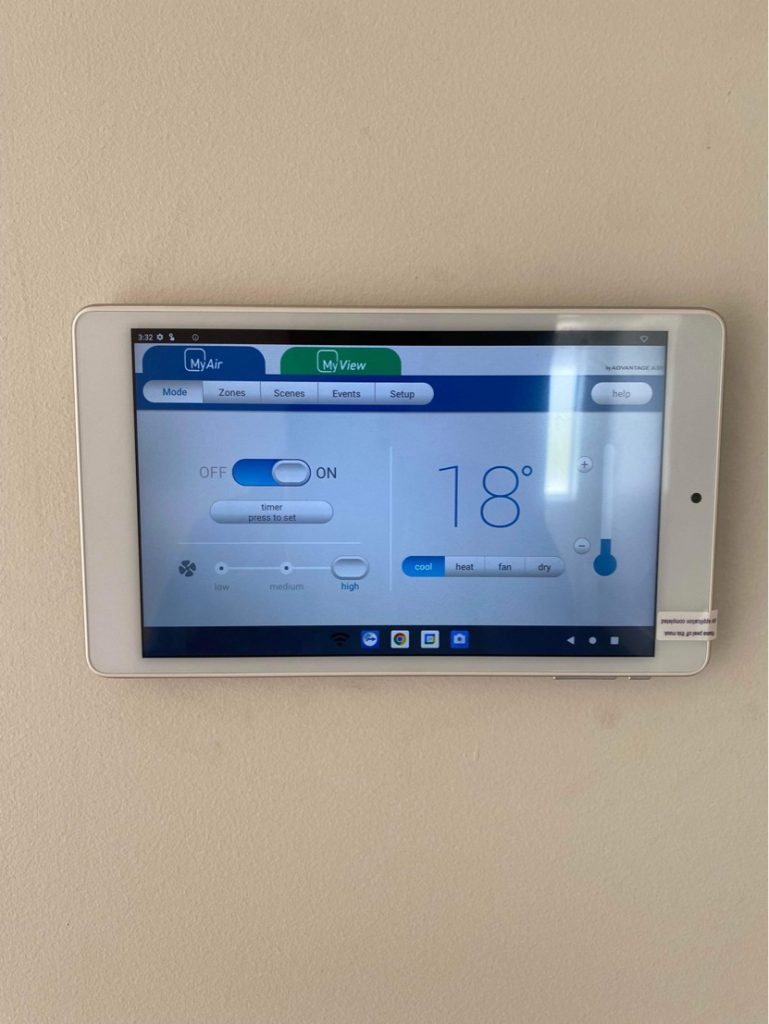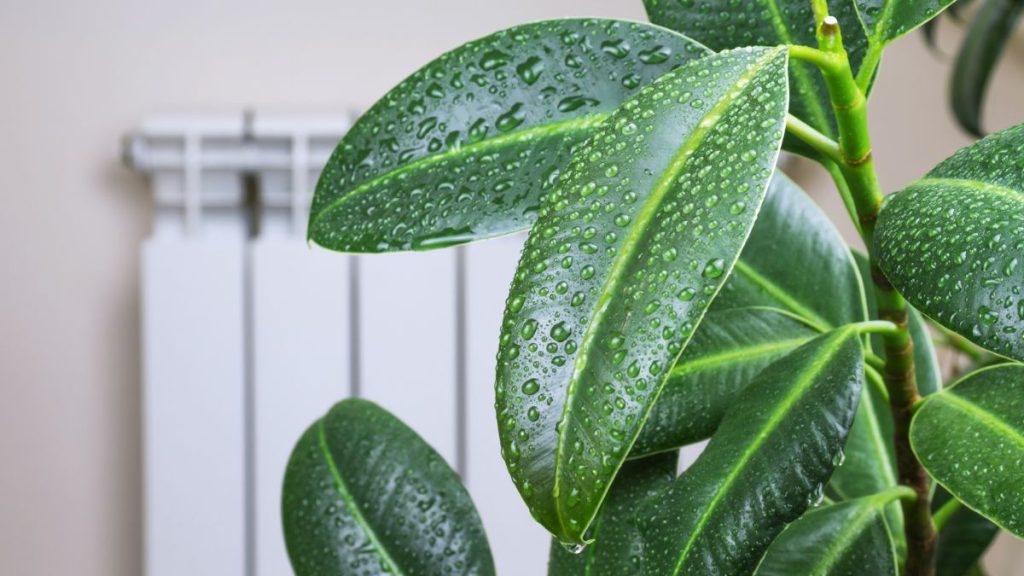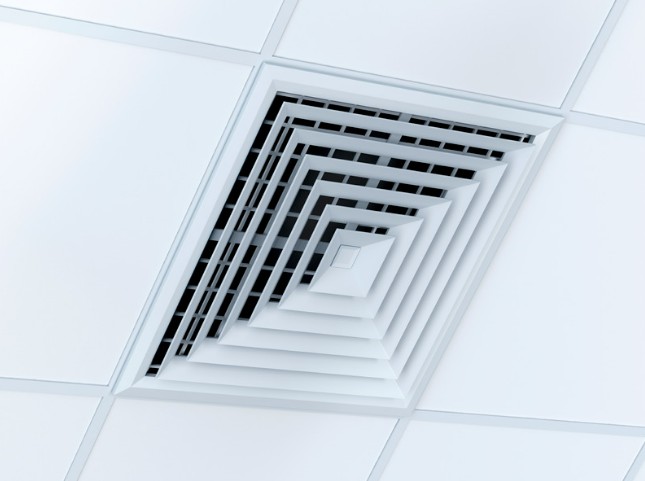There’s nothing worse than cranking your AC up to full blast and still not getting any cool air. In the height of a scorching Brisbane summer, an air conditioner not cooling can leave you sweating with no hope of relief. Sometimes all that’s stopping your air conditioner from cooling is a clogged filter, but it can be something more serious like a refrigerant leak or electrical fault.
BG Electrical and Air Con are your Brisbane air con experts and have tackled countless cooling problems in Brisbane homes. We’re always on standby to diagnose and fix your cooling issues. There are a few things you can check before giving us a call to get the cold air flowing, so let’s take a look at the most common causes and solutions.
Table of Contents
Clogged or Dirty Air Filters
Is your air conditioner blowing warm air instead of cooling? A clogged air filter could be the culprit. This is a fairly common problem affecting thousands of Brisbane homes every summer, turning your cooling system into nothing more than an expensive fan. Your system can’t cool your home properly when dust, dirt, and debris block the airflow through these filters. It also has to work harder, which drives up your power bills and wears out important parts faster.
How to clean or replace air filters
Keeping filters clean is easy. Here’s what you need to do:
- Turn off your air conditioner at the wall
- Locate the filters. Split systems have them behind the front panel inside; ducted systems have them at the return air grill
- Remove filters gently by pulling the tab at the bottom edge
- Take them outside to brush off dirt, then vacuum with a dusting brush
- Wash using warm water and mild soap
- Let filters dry fully in the shade before putting them back
You should clean your filters regularly during peak cooling season. Brisbane’s weather might mean you need to clean them more often, especially if you have pets, live near construction sites, or constantly run your air conditioner.
Wrong Cool Settings
Nobody likes to find their air conditioner blowing warm air during summer, but you could be in luck if the problem comes down to an incorrect thermostat setting.
Thermostat settings and cooling mode
The first step to fix an aircon that’s not cooling is to check if it’s set to “Cool” mode instead of “Heat” or “Fan” mode. This might seem basic, but many people overlook it.
The sweet spot for cooling in Brisbane’s climate lies between 24°C and 26°C. This range gives you the best mix of comfort and efficiency. Each degree below 25°C adds up to 10% more energy use and puts extra stress on your system.
Common thermostat mistakes
Your system works harder when you keep adjusting the temperature. The AC runs best when you keep a steady temperature for at least eight hours. And don’t fall for the trap of setting your temperature low on the hottest days. This doesn’t speed up cooling; it just makes your system run longer and harder.
Fixing thermostat issues
Most thermostat problems have simple solutions. Start by making sure you’ve picked “Cool” mode and set a temperature lower than your room’s current temperature. Your system won’t cool if the room sits at 24°C while your thermostat is set to 25°C.
Check your thermostat’s batteries and put in new ones if needed. Wall-mounted units need proper sealing against the wall because air leaks from inside walls can mess up your temperature readings.
Low Refrigerant Levels or Leaks
Your Brisbane home’s air conditioner might have a hidden refrigerant leak if it’s not cooling properly. This issue needs immediate professional attention, unlike other common problems.
Refrigerant is your AC’s lifeblood, switching between liquid and gas states to move heat efficiently. The system is completely sealed, so it should never need more refrigerant unless there’s a leak.
Signs of a refrigerant leak
You can save money on repairs by catching refrigerant leaks early. Look out for these warning signs:
- Weak cooling performance
- Ice formation on refrigerant lines or the evaporator coil, even in warm weather
- Hissing or bubbling sounds from your unit during operation
- Higher electricity bills with no changes in normal use
- Short cycling (system turns on and off frequently)
- Increased indoor humidity levels
Why only professionals should handle refrigerant
DIY refrigerant repairs are dangerous and against the law. Professional handling of refrigerants is important, since these chemicals can seriously harm your health, and the wrong amount can badly damage your system.
BG Electrical and Air Con’s professional technicians use specialised equipment to find leaks, recover existing refrigerant, and charge your system according to manufacturer specifications. Call us today if you suspect a refrigerant leak.
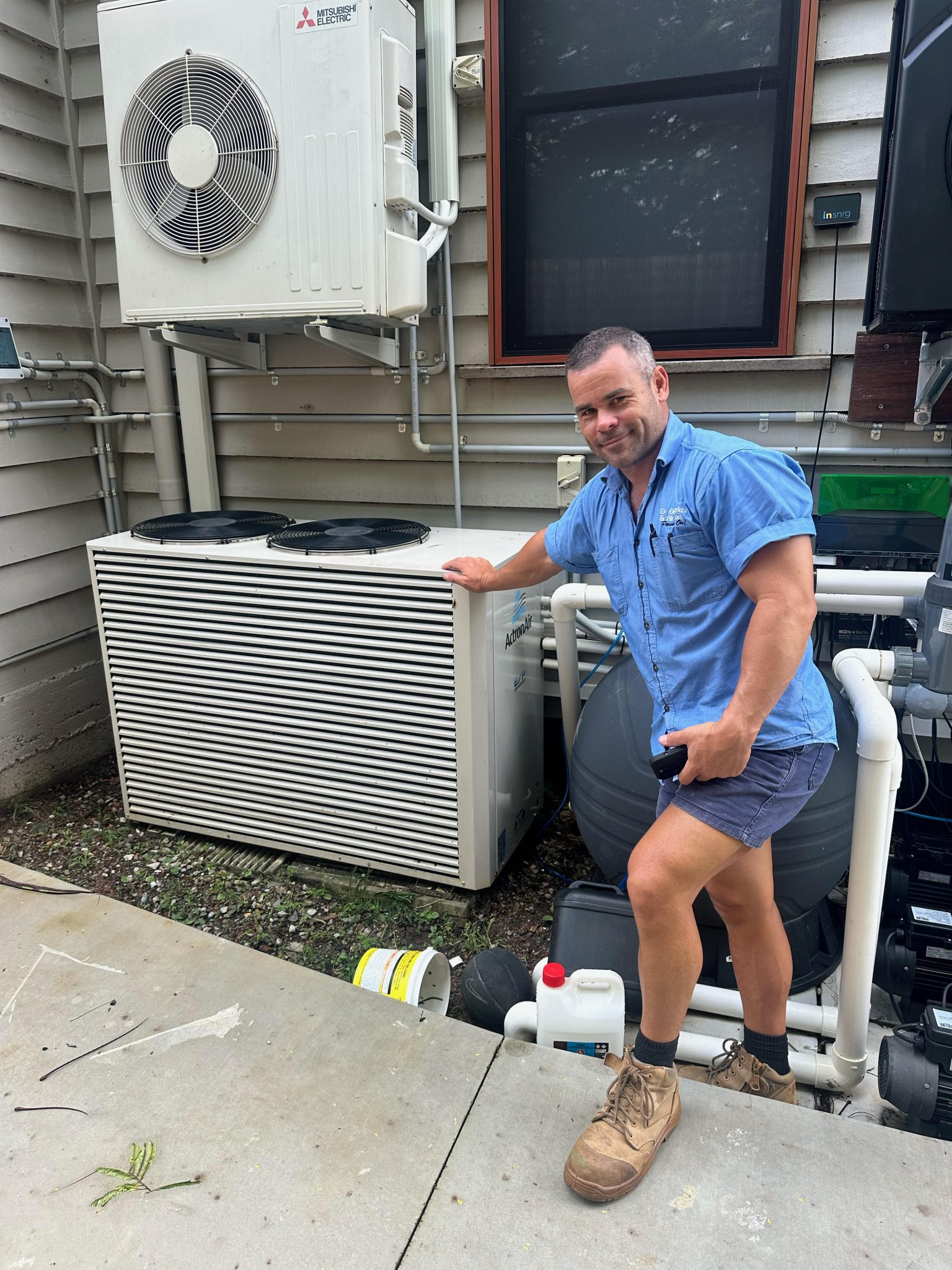
Frozen Evaporator Coils
Your air conditioning system freezing up in the middle of summer might sound strange, but frozen evaporator coils are actually one of the main reasons cooling systems fail.
How frozen coils affect cooling
Your evaporator coil works by absorbing heat from warm air that passes over it. The refrigerant inside the coil takes in this heat, cools the air, and sends it back into your home. Ice covering your evaporator coil blocks heat absorption by acting as an insulator. Your air conditioner has to work harder and longer, but it can only produce lukewarm air.
Here are signs that point to a frozen evaporator coil:
- Warm or humid air from your vents
- Ice you can see on coils or refrigerant lines
- Air barely coming out of vents
- Unusual hissing or bubbling noises
- Your home feels more humid
Frozen coils don’t just make you uncomfortable – they make your system use more power, leading to bigger bills or damage to your compressor.
Steps to defrost and prevent future issues
Take these steps right away if you think your coils are frozen:
- Switch off your entire air conditioning system to avoid damage
- Let the coil defrost naturally for about 24 hours
- Speed up thawing by running just the fan (not cooling) to blow warm air over the coils
Don’t try to chip off the ice – you could damage the coil and cause refrigerant leaks.
Frozen coils sometimes signal bigger problems that need professional help, so give us a call to fix any issues before permanent damage happens.
Blocked or Dirty Condenser Unit
When you notice your air conditioner not cooling, one of the first steps should be checking your outdoor condenser unit. Sometimes air conditioners won’t cool just because outdoor units are clogged with debris.
Role of the condenser in cooling
Your system’s cooling process depends on the condenser, which sits outside and releases heat from inside your home. But dirty condenser coils can’t transfer heat well. Studies show they reduce cooling capacity by up to 7% and make your system use about 16% more power.
How to clean your outdoor unit
You don’t need special skills to maintain your condenser unit, but you need to be careful:
- Turn off all power at both the unit and circuit breaker
- Clear surrounding area by removing plants and debris within 60 cm of the unit
- Remove visible debris with a soft brush or vacuum cleaner
- Gently remove the top grill if you feel comfortable doing this
- Clean the condenser coils using environmentally friendly coil cleaner
- Rinse gently with a garden hose, avoiding high-pressure water that can damage the fins
- Allow to dry completely before turning the power back on
You should notice better airflow and cooling right after cleaning. Do this maintenance once a year, just before Brisbane’s hot season starts.
Electrical Issues
Electrical issues rank among the most common reasons for air conditioning system failures. Your AC needs consistent power to work properly, and it won’t cool if power gets interrupted by a tripped circuit breaker, blown fuse, or wiring problem.
Your cooling system can face several electrical problems:
- Loose electrical connections that create excessive heat
- Damaged wiring from renovations or pest activity
- Incorrect cable sizing that causes nuisance trips
- Power fluctuations or surges during storms
- Checking fuses and circuit breakers
The first step when your air conditioner stops working is to check if the circuit breaker has tripped. This is particularly common in older homes where your air con shares a circuit with other appliances. A tripped switch can be turned back on, but a blown fuse will need professional attention.
When to call an electrician
You can reset a circuit breaker easily, but some situations just need professional expertise:
- Breakers that trip repeatedly
- Visible damage to electrical components
- Burning smells or unusual noises
- Any breaker that feels hot to touch
- Flickering lights or warm power outlets
Fixing electrical issues without proper qualification is dangerous, so you should never attempt them yourself. Our licensed electricians at BG Electrical and Air Con can safely handle all electrical issues affecting your air conditioning system. Call us right away if your cooling system has ongoing electrical problems.
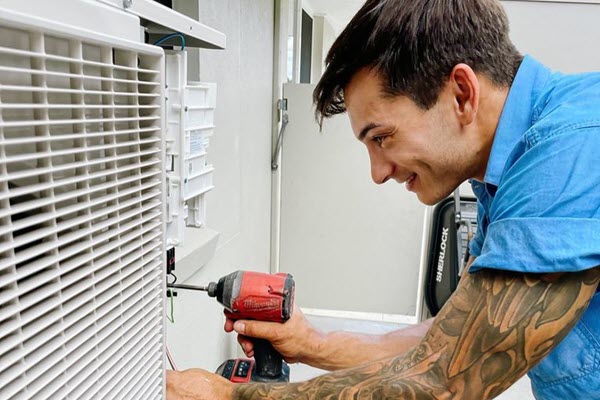
Compressor Failure or Wear
Compressors make the heat transfer possible and keep your home cool, but they wear out over time.
Signs your compressor is failing
These warning signs could mean your compressor needs attention:
- Warm air from vents
- Banging, clanking, grinding, or squealing noises
- Reduced airflow
- Circuit breaker tripping
- Higher energy bills
Repair vs replacement advice
You need to make a choice between repair and replacement when compressor problems show up.
Repairs might work for small issues like electrical parts or external components, but most major compressor failures need replacement. Depending on how long you’ve had your AC, it might even be more sensible to replace the whole system. There’s no point pouring extra money into an old air con that might fail soon anyway.
Our technicians will give you a straight answer, talking you through the options to help you make the right choice for your system.
Wrong Air Conditioner Size for the Room
Your Brisbane home might not cool properly because your air conditioner isn’t the right size. The wrong size creates more problems than just making you uncomfortable.
When air conditioners are too big, they cool spaces too fast but turn on and off too often. This cycling doesn’t remove humidity well, which leaves your space feeling damp and might help mould grow. The constant starting and stopping also uses more power and wears out important parts faster.
Small units have the opposite problem. They run non-stop but never cool your space properly. This endless operation wastes energy, drives up your power bills, and burns out your system early.
How to calculate the right size
The right size depends on several factors beyond just room size:
- Insulation quality
- Window placement and size
- Local climate conditions
- Building materials
Replacing your air conditioner works best when it’s the wrong size. Call BG Electrical and Air Con today to get the right advice and a quote for the right system.
Leaking or Damaged Ductwork
Leaky ducts can decrease your air conditioning efficiency by up to 30%. Cool air escapes through damaged ductwork, and your system struggles harder and runs longer to reach the temperature you want.
Signs of duct damage
Your ductwork might need attention if you notice these common signs:
- Room temperatures vary significantly from one area to another
- Energy bills spike without any obvious reason
- Air barely flows from your vents while the system runs
- Dust builds up around your vents
- Your ducts make rattling or whistling noises
Fixing ductwork with BG Electrical and Air Con
A professional duct sealing service can boost your system’s efficiency right away. Brisbane summers can be brutal with faulty ductwork, so get us in to inspect and repair your ducts today.
Short Cycling or Frequent Shut-Offs
Short cycling happens when your air conditioner switches on and off faster than normal without finishing its cooling cycles. The intervals become much shorter with short cycling, meaning your home won’t reach comfortable temperatures, and system components wear out faster.
Causes of short cycling
Your air conditioner might short cycle because of these problems:
- Improper sizing
- Dirty air filters
- Refrigerant leaks
- Thermostat problems
- Electrical issues
How to fix it
Try these steps right away:
- Put in clean filters to improve airflow
- Check that nothing blocks your vents
- Remove debris near outdoor units so heat escapes properly
Ongoing short cycling usually points to bigger problems that need professional help. BG Electrical and Air Con stands ready to help with expert air conditioning repair across Brisbane.
Time For an AC Service?
An air conditioner that won’t cool properly will drive anyone crazy. Regular maintenance can stop many AC problems before they start, but some problems call for the experts.
BG Electrical and Air Con technicians tackle these cooling problems daily. We fix problems fast to restore your comfort, and our annual services are designed for Brisbane’s unique climate conditions to prevent future issues.
Don’t wait for your air conditioner to break down on summer’s hottest day. Book a service to get the cold air flowing.



